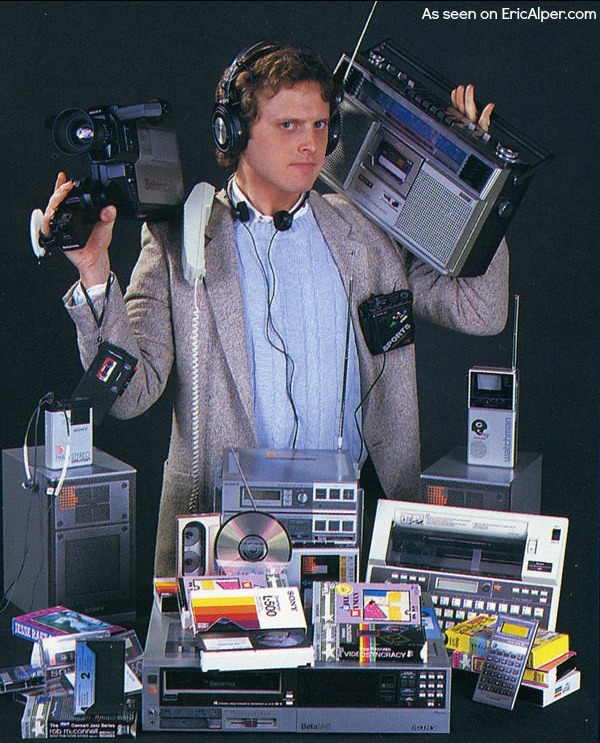Yep, this is not a typo. Not monadic but nomadic. Although monads are cool too.
A few days ago the CTO of a company I work for said it's time to specialize. He was talking about my career. Offering me a few things to try and then pick one. But this got me thinking.
Today another CTO told me that I'm "essentially a good dev" and that chosen software stack doesn't matter. And I agree. (Patrick does too).
 |
| 20 years later all this fits in your pocket |
But all this "computerization" also pushes up the upper bound of complexity. And this is where engineers kick in. If you have complex solution you require (hopefully less) complex solutions. And you need people who can manage this complexion. Not by being machines but by understanding, inventing concepts and structuring them. Big software has millions if not billions of moving parts. Imagine a machine of such complexity. There probably isn't a human out there who could manage this in it's entirety. But software engineers are expected to do this. You need the ability to see something and relate it to known concepts or invent a new concept and relate it to oter stuff. Connect things together. And to do this well you need broad knowledge. Yes you need specialization - depth - to do something very well but this is a lesser problem. See a good engineer can go from zero to awesome in a new field very quickly. Learning a new language can be done in a week and a software stack in a bit more. I'm not saying you become an expert or the very best in the field but if you have the urge to learn you are not far behind. So a good engineer is the one who has the ability to learn and to produce real solutions with this knowledge.
Nomads
So where does nomadic programming fit into this philosophy? Going from language to language, from framework to framwork and changing software stacks. Not settling down. This (in my opinion) teaches you what can be done and haw can stuff be done. In all possible ways. So you can figure out the best solution. Learning all the time also keeps you on the bleeding edge and this is fun and engaging. Having new toys all the time! I can't image myself working with just one thing for the rest of my life. Meeting new languages and new framework is what I do in my free time. So when a customer says they need Ruby on Rails and I never used it before....it's not a problem. I've seen ruby, I know python and I know how MVC is supposed to work. Putting it all together is not that hard. You can even hit the ground running and start working right away. Of course you'll be a bit slower in the start but you can catch up. So no, I don't want to specialize. I want to know everything that is there to know! And I believe this will make me a better engineer. Or developer. Or person. And I believe that quality of their employees shoud matter to the employer. It is developers who create their products.
You should always strive to become better!






To a large extent, I agree with your views. Fundamentally, I use portable assembler (C), executable chaining (shell), function chaining (scripting), and a host of DSLs (SQL, XPath, sed, ...). Using variant does not matter that much, except for when it comes to the gotchas. These things always end up full of them. The first time over, you will always end up burning your fingers with them ...
ReplyDeleteWow I am not alone in the world. Exactly the say way I am comfortable switching between .net, php, c whatever.
ReplyDeleteYou've just hit the nail on the head! That's a large part of what I love about programming!
ReplyDeleteIt's actually really dangerous to "pick one stack" and then stick to it. The said stack can be abandoned by maintainers or a better way of doing it may come along...
ReplyDeleteHowever.. the better way may spoil you ;-) its hard going back. But sometimes its needed.
Delete